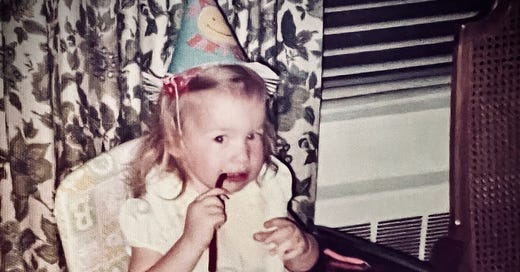Birthday Ambivalence and Other Super Powers
Learning to abide in the tension between what we wish for and what is. Cuz if you try sometimes, you might find, you get what you need...
The work of spiritual integration is essential. And it is exhausting.
One of the gifts of walking the way of contemplation these last few years has been learning that nothing—and no one—is wholly one thing or the other. Such duality is a falsehood. In fact, the secret sauce of life is realizing tha…




